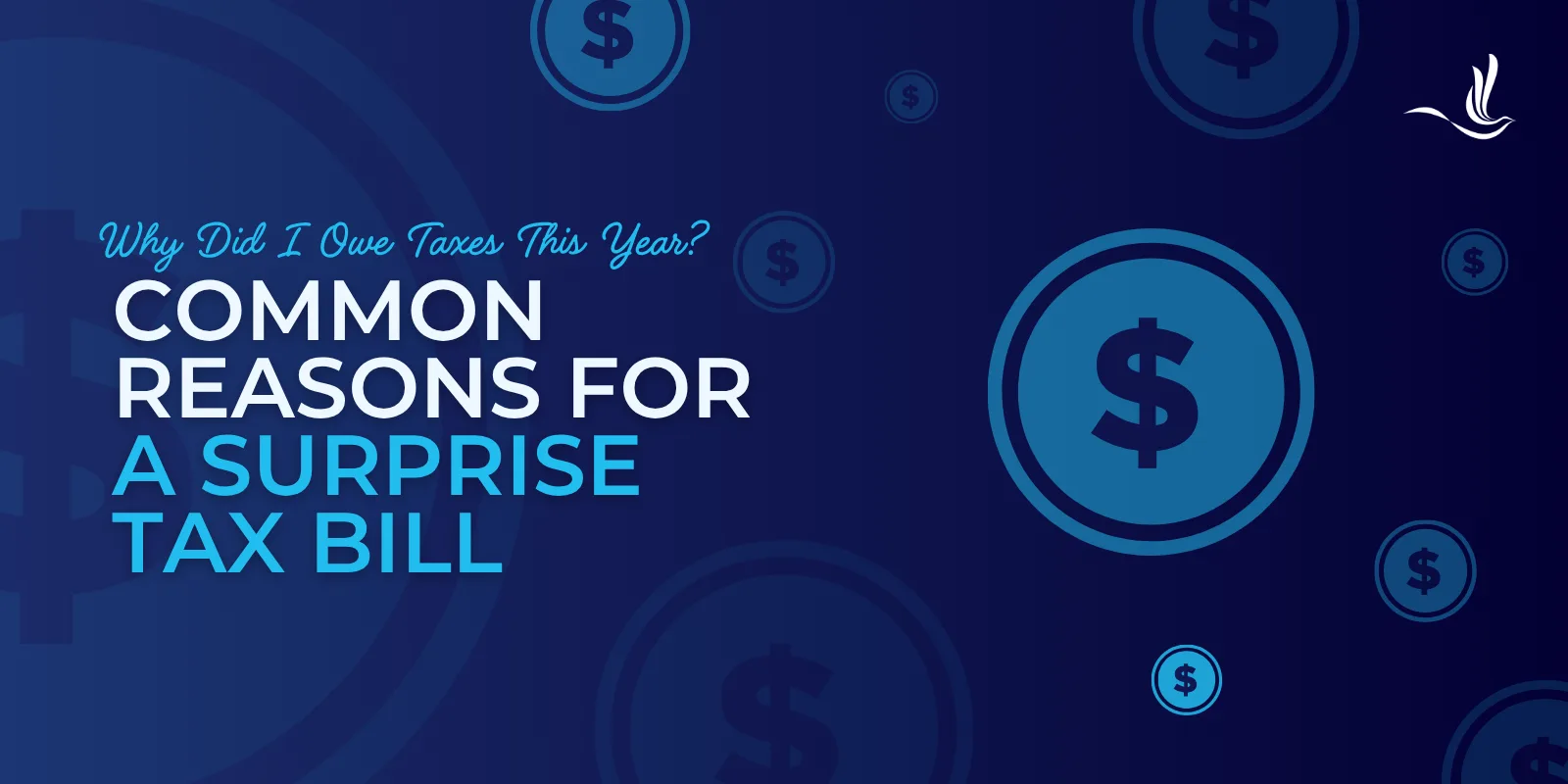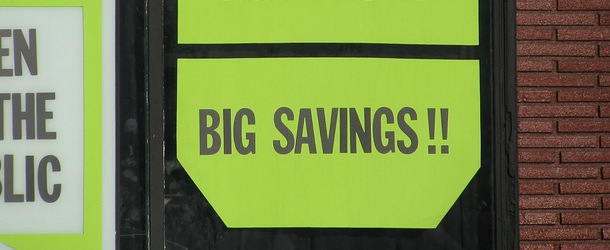Key Takeaways:
- Unexpected tax bills often result from not updating your W-4 form after major life changes or income shifts, causing insufficient withholding during the year.
- Multiple income sources like second jobs or freelance work can increase your tax liability if withholding isn’t adjusted or estimated taxes aren’t paid.
- Self-employed individuals must account for both income and self-employment taxes by making quarterly estimated payments to avoid large year-end balances.
- Untaxed income such as investment gains, interest, or unemployment benefits can trigger surprise tax bills if not planned for properly.
- Changes in tax laws, credit eligibility, or personal circumstances (marriage, divorce, dependents) can affect your overall tax owed even if income remains stable.
- If you owe taxes, file on time to avoid penalties, consider IRS payment plans, and adjust your withholding or estimated payments to prevent surprises next year.
Owing taxes can be an unsettling surprise, especially if you expected a refund or thought your employer was withholding enough. If you found yourself asking, “Why did I owe taxes this year?” you’re not alone. Many Americans face unexpected tax bills for reasons that aren’t always obvious.
Whether you changed jobs, started a side hustle, or simply didn’t adjust your withholdings after a major life event, there are several common scenarios that can result in owing money to the IRS. This guide will walk you through why it happens, how to prevent it, and what to do next.
How Tax Withholding Works
Before exploring the reasons behind a surprise tax bill, it’s important to understand how taxes are typically collected during the year.
What Is Tax Withholding?
For most employees, federal income taxes are withheld from each paycheck based on estimates of your total annual income. Your employer uses IRS tables and the information you provide on Form W-4 to calculate how much to withhold. If these estimates are off, or if your income changes during the year, your actual tax liability at filing time may be very different from what was withheld.
The Role of the W-4 Form
When you start a new job, you fill out Form W-4, which tells your employer how much federal income tax to withhold. This form allows you to specify things like your filing status, dependents, and any extra withholding you’d like.
However, if you don’t update your W-4 after significant life changes, like marriage, divorce, having a child, or taking on freelance work, you could end up underpaying your taxes without realizing it. Even staying at the same job with no change in income can lead to under-withholding if the W-4 you submitted years ago no longer reflects your current situation.
Common Reasons You Might Owe Taxes
If you owed taxes for the first time, it’s likely due to one of these common reasons.
You Didn’t Withhold Enough from Your Paycheck
One of the most common reasons people owe taxes is insufficient withholding throughout the year. This often happens when your W-4 form is not properly updated or doesn’t reflect your true tax situation.
For example, let’s say Leah recently got divorced and began filing as “head of household” instead of “married filing jointly.” While that filing status typically offers better tax benefits than single, she forgot to submit a new W-4 to reflect her new status and her now single income. Her employer continued withholding based on the “married” rate, which resulted in too little tax being withheld over the year. When she filed her return as head of household, she owed over $1,100 in taxes simply because her employer’s withholding didn’t match her actual tax situation.
You Have More Than One Job or a Side Hustle
Having multiple income sources, like a second job, freelance gig, or ride-share driving, can unintentionally increase your tax liability. That’s because each employer withholds based on the assumption that their job is your only job, possibly putting you in a lower tax bracket than you actually fall under when all income is combined.
For example, Jason works full-time at a marketing firm and also earns $10,000 a year from consulting. His employer withheld appropriately for the $65,000 salary, but not for the side income. Since Jason didn’t make estimated tax payments on his freelance income, he owed over $2,000 when he filed. If you freelance or have a side hustle, consider making quarterly estimated payments to cover the tax owed on that additional income.
You’re Self-Employed or a Freelancer
Unlike employees, self-employed individuals don’t have taxes automatically withheld. That means you’re responsible not just for income tax but also for the self-employment tax. Self-employment tax covers your share of Social Security and Medicare taxes (a combined 15.3%).
Let’s look at another example. Lana left her job to become a full-time wedding photographer and earned $80,000 in her first year. She didn’t set aside any money for taxes or pay quarterly estimates. After factoring in self-employment tax, she owed nearly $18,000. If you’re self-employed, it’s critical to calculate and pay quarterly estimated taxes or risk a hefty bill plus penalties.
You Had Investment or Other Untaxed Income
If you earned interest, dividends, capital gains, or cryptocurrency profits, this income may not have been taxed upfront. The IRS still expects its cut, and if you didn’t plan for it, you could owe.
For example, Danny sold stocks in a brokerage account and made $7,000 in capital gains. His brokerage didn’t withhold any tax, and he didn’t report estimated payments. As a result, he owed $1,050 at filing time. Even bank interest and retirement account withdrawals (outside of qualified distributions) can trigger a tax liability.
Unemployment Benefits or Stimulus Payments Confusion
Unemployment benefits are taxable income, but tax isn’t automatically withheld unless you specifically request it. Many people were surprised by this during the pandemic.
Here’s an example. Amber collected $15,000 in unemployment after being laid off. She didn’t opt to withhold taxes and was shocked when she owed $2,200 at tax time. While stimulus checks (Economic Impact Payments) were not taxable, they did interact with tax credits like the Recovery Rebate Credit. Some people had to repay or missed out on these if their income changed.
You Claimed Fewer Credits or Deductions This Year
Tax credits and deductions directly reduce your tax burden. However, if something changed that made you ineligible, your tax bill could increase unexpectedly.
For example, say your child turned 18 and no longer qualifies for the Child Tax Credit. Then you paid off your student loans and lost the interest deduction. Because of this, you switched from itemizing to taking the standard deduction. These changes may seem minor, but they can shift your refund into balance due territory.
Withholding and Tax Law Changes Catch People Off Guard
Even if your income and job stayed the same, changes to tax laws or your personal circumstances can quietly affect how much tax you owe. This is often without you realizing it until it’s time to file.
IRS Adjustments to Tax Brackets or Credit Amounts
Every year, the IRS updates tax brackets and credit thresholds to account for inflation. If you’re not paying attention to these shifts, your withholding may fall out of sync with your actual tax liability. For instance, the Child Tax Credit was expanded temporarily in 2021 but reverted to pre-2021 levels afterward, cutting some families’ credits in half or more.
Changes in Life Circumstances
Major life events can also affect your taxes dramatically. Common examples include:
- Marriage or divorce: This changes your filing status and potentially your tax rate.
- New baby or dependent loss: Gain or loss of dependents impacts credits and deductions.
- Moving to another state: State tax laws vary widely, and you may owe in both states depending on timing.
If you don’t update your withholding or plan ahead, you might owe taxes you didn’t expect.
What to Do If You Owe Taxes
Finding out you owe taxes can be stressful, but it’s important to know that you have options. Taking action quickly can help you avoid penalties and interest.
File Even If You Can’t Pay
If you owe money, always file your tax return on time to avoid the failure-to-file penalty, which is significantly higher than the penalty for not paying. Even if you can’t pay the full amount, you can take steps to reduce penalties and set up a manageable plan.
Set Up a Payment Plan with the IRS
If you owe less than $50,000, you can apply for an IRS payment plan (Installment Agreement) online. This allows you to break up your tax bill over time with monthly payments. Short-term plans (under 180 days) don’t charge setup fees. Long-term plans do, but they prevent more serious collection actions.
Adjust Your Withholding for Next Year
To prevent a repeat surprise next tax season, take a few minutes to use the IRS Tax Withholding Estimator and revise your W-4 or estimated payments. The tool helps calculate your projected tax liability based on current income, credits, and withholding.
This is especially important if:
- You got married or divorced
- You changed jobs or got a raise
Even a $25 increase in your withholding per paycheck could be enough to cover what you owed this year.
Frequently Asked Questions
Why do I owe federal taxes this year when nothing changed?
Even if your income and job remained the same, factors like IRS adjustments to tax brackets, changes in tax credits, or outdated withholding can cause you to owe federal taxes unexpectedly.
Is it better to owe or get a refund?
Ideally, you want to break even. Owing little to no taxes or receiving a small refund is the goal. Overpaying means you’ve given the government an interest-free loan, while owing means you underpaid during the year.
Why do I owe taxes now that I make more money?
Higher income can push you into a higher tax bracket, increasing your tax liability. If your withholding or estimated payments don’t keep pace with this rise, you may owe taxes at filing.
Why do I owe taxes when I normally get a refund?
Changes in your withholding, additional income sources, loss of tax credits or deductions, or life events can reduce or eliminate your refund and result in a tax bill instead.
Why do I owe state taxes this year when nothing changed?
State tax laws, brackets, or credits may have changed, or your state withholding might not align with your total income, causing you to owe even if your personal situation stayed constant.
Tax Help for Those Who Owe
If you’re wondering “Why did I owe taxes this year?”, you’re not alone. Between side gigs, changes in family life, untaxed income, and outdated withholding, it’s easier than ever to underpay without realizing it. The good news? Now that you understand the causes, you can take control of your tax situation. Update your W-4, stay on top of estimated payments, and revisit your tax plan each year to avoid unwelcome surprises in April. If your tax picture is especially complex, don’t hesitate to consult a tax professional who can provide personalized guidance and help you create a strategy that works all year long. Optima Tax Relief is the nation’s leading tax resolution firm with over $3 billion in resolved tax liabilities.
If You Need Tax Help, Contact Us Today for a Free Consultation
Publisher: Source link











